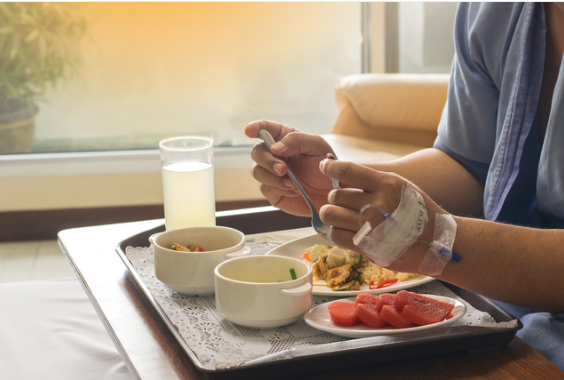Cancer, as well as its treatments, have unpredictable effects on your body and your appetite. The illness and its treatments may also alter your body's ability to tolerate certain foods and to use nutrients. Many people may experience eating problems during and after the treatments.
If you’re having mouth, throat, or stomach surgery for cancer, you will experience difficulty in eating. You may need to get nutrition in other ways, such as intravenously (through a vein); through a tube in your nose; or through a tube in your stomach or the upper part of your intestine.
Radiation treatment to the head and neck can also cause trouble in eating. You will have difficulty in swallowing and you could experience taste changes, dry mouth, or soreness in the mouth or throat. Radiation to the chest can also trigger trouble in swallowing. Similarly, radiation to the stomach, abdominal (belly) area or pelvis can cause nausea and vomiting, diarrhea, cramps, and bloating.
Many chemotherapy medications can affect your digestive system. You will experience nausea and vomiting, decreased appetite, diarrhea, constipation, weight gain or loss.
Immunotherapy stimulates your body’s immune system to fight cancer cells. Side effects include:
Hormonal therapy uses medications that stop your body from making some hormones or change the way they work. Side effects include changes in appetite, water retention, weight gain, and nausea and vomiting.
What to do?
During cancer treatment, it’s important to ensure that you absorb the recommended nutrients from a well-balanced diet. This is because your body has a hard time fighting off infection. Taking a low-dose multivitamin and mineral supplement can help, if you have a poor diet.
If you’re experiencing difficulty in eating, here are some suggestions for selecting food:

Seek help from your doctor or a registered dietician for further advice if these measures don't help.
Blog Reviewed By: Dr. Shiva Kumar Uppala
Mail us: oncologistindiadrshiva@gmail.com
Book appointment:oncologistindia.com/book-appointment